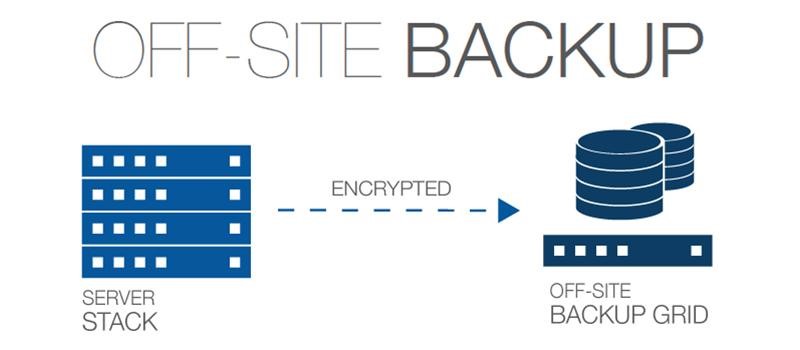

Secure: Cloud backup service providers place their servers in secure locations, which means that data is secure physically. Since, all backups are created over the cloud, it can be recovered easily and quickly. Additionally, servers through which data can be accessed can be set up in geographically dispersed locations, which ensure that backed up data is available and accessible even if a server crashes. Files and folders are updated regularly or time can be set for the task. Reliable: Automation is the greatest advantage of remote based cloud data backup. This was time-consuming and required staff to spend additional working hours into their work schedule just to handle the backups. However, modern day cloud backups can be created with a couple of clicks, and can be scheduled to run the backup jobs when you are away, making the data recovery a breeze. Reduced Workload: Up until cloud backup technology was introduced, data backup was performed by a designated IT person, who would copy or manually create a backup for data and files. As the most chosen method of backing up, cloud backup provides the following advantages: Organisations find cloud based automated backups to not only be easy, but also hassel-free, with just set it and forget it approach. Most organisations choose Cloud backup solution for offsite backups. The main reason why one performs backups is to recover data in case of accidental deletion, corruption, natural disaster, and other factors that may cause data loss. If backups are properly done, recovery of data or applications become easier and effective whenever disaster strikes. For this, backups will be created through WAN from one branch to another and transferred through the network to a central location. Enterprises will also be able to manage a higher degree of corporate control over its backup policies.ĭepending upon the backup requirement of the enterprise and the situation within its production facilities, securing data to an offsite locations may be more cost-effective than that of creating data backup onsite. will be helpful in making efficient use of IT resources. Organisations that are geographically dispersed may use automated offsite data backup solutions to backup their data to a central location, instead of making every branch maintain their backups on site. This type of backup is also known as remote backup, online backup or cloud backup. #OFFSITE DATA BACKUP MANUAL#
Automated Remote Cloud Backup: This is a 21st-century technology, which improved the manual transportation of files to an offsite location. All applications and data are backed up automatically as they are being processed, and stored on servers that are located offsite, in some cases in another country or continent.Physical Transfer: This involves copying files onto a removable hard drive and storing it in another location. Various sizes of data could be transported to the offsite location daily, or weekly or at any other intervals, based on the needs of the company.Offsite data backup is usually performed by one of the following two ways: Additionally, offsite backup solutions provide excellent accessibility of data through interconnected devices from with in various locations. The need for offsite data backup include the consolidation of backup operations, cost savings, and most importantly, disaster recovery. Maintenance of infrastructure is also hassle-free, as the burden lies upon the shoulder of the service provider. Offsite backup solutions provide several benefits to businesses, such as increased reliability and efficiency and are based upon such capabilities and features, which most companies may be able to afford. Offsite backup refers to the duplication of files to a separate geographical site, which can be another building or in the cloud over the Internet. Such data protection is helpful in situations, where data recovery becomes essential, and prevent any data loss which may propagates over a network.

Businesses understand the importance of keeping, maintaining, and safeguarding data by creating copies - also known as backups - to a remote offsite location.






 0 kommentar(er)
0 kommentar(er)
